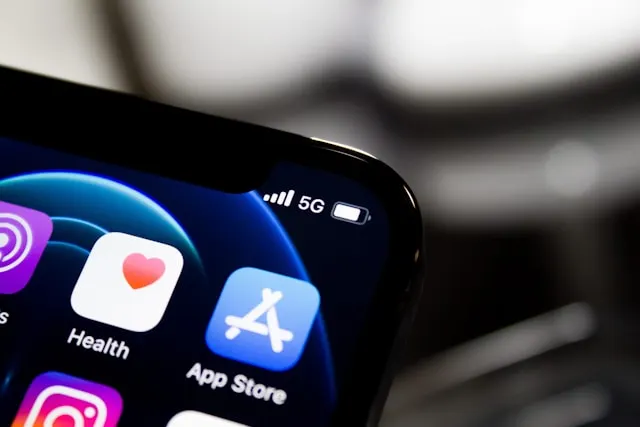5G technology has revolutionized the way we connect and interact with the world. With its blazing fast speeds and incredible bandwidth, it’s changing everything from how we communicate to how cities and industries operate. In this article, we’ll explore some of the top uses of 5G technology that are making significant impacts in recent times.
Table of Contents
1. Enhanced Mobile Broadband
One of the most straightforward benefits of 5G technology is enhanced mobile broadband. This simply means much faster internet speeds on your mobile devices. With 5G, downloading large files, streaming high-definition videos, and enjoying immersive virtual and augmented reality experiences become much smoother and more efficient. This upgrade is not just a slight improvement; it’s a massive leap forward that makes mobile internet feel like a high-speed wired connection.
Also read: How To Monitor Employees Remotely
2. Smart Cities
5G technology is a game-changer for smart cities. It supports the infrastructure needed to make cities smarter and more efficient. For example, 5G can help manage traffic flows better through real-time data collection and analysis, reducing congestion and improving road safety. It also enhances the capabilities of smart grids, which can more efficiently distribute electricity based on real-time demand and conditions.
Moreover, 5G enables better management of resources and services, such as waste management and water supply, making cities more sustainable.
Also read: The Importance of Email Marketing Campaigns for Your Business
3. Health Care Innovations
The health care sector is benefiting immensely from 5G technology. It enables telemedicine, which allows patients to consult with their doctors via video calls. These aren’t just any video calls; they are high-quality interactions that can include the transmission of large medical files and live medical data sharing.
Additionally, 5G facilitates remote surgery, where surgeons can control robotic instruments from miles away to perform surgeries, offering access to specialist procedures in underserved areas.
Also read: Benefits Of Workforce Management
4. Industrial Automation
5G technology is crucial for industrial automation. In factories and industrial plants, 5G enables the Internet of Things (IoT) by connecting a vast number of sensors and devices in real-time. This connectivity allows for more automated and efficient manufacturing processes. For example, sensors can detect when a machine part needs maintenance before it fails, thus preventing downtime.
Also read: Top Ideas to Celebrate a Kid’s Party
Additionally, 5G’s low latency—the delay before data begins to transfer following an instruction for its transfer—means that machines and devices can communicate almost instantaneously, making industrial processes faster and safer.
Also read: Import Factors To Consider For Creating Custom Home
5. Autonomous Vehicles
Autonomous vehicles rely heavily on the capabilities of 5G technology. These vehicles need to process a huge amount of data from sensors, cameras, and GPS to navigate safely. 5G’s high speed and low latency ensure that autonomous vehicles can receive and send this information in real-time, allowing them to make instant decisions on the road. This technology not only supports safer operation of autonomous vehicles but also paves the way for their widespread adoption in public transportation and logistics.
Also read: How To Avoid Expensive Payroll Errors
6. Enhanced Gaming and Entertainment
5G technology is significantly enhancing the gaming and entertainment industry. For gamers, 5G reduces latency to a minimum, which is crucial for competitive online gaming where every millisecond counts. This improvement ensures that commands are executed almost instantaneously, providing a smoother and more responsive gaming experience.
Also read: Reasons You Should Hire a Wedding Planner
Beyond just gaming, 5G enables more immersive entertainment experiences, such as virtual reality (VR) and augmented reality (AR) that require high bandwidth to process detailed, lifelike images and interactions in real time. This means users can enjoy more complex and interactive VR and AR environments, whether they’re watching a live concert, exploring a new city, or participating in interactive educational content.
7. Agricultural Advancements
Agriculture is also reaping the benefits of 5G technology. With the introduction of IoT devices enabled by 5G, farmers can monitor crop and livestock conditions more effectively. For instance, sensors can provide real-time data on soil moisture, crop health, and livestock biometrics, allowing for precise farming.
Also read: Tips To Get Booth At Expo
This data helps in making better decisions about when to water, fertilize, or treat plants for disease, which can increase overall yield and efficiency. Furthermore, 5G enables the use of automated equipment like drones for crop monitoring and spraying, which reduces labor costs and improves precision in applying products like pesticides and fertilizers.
Also read: Tips For Choosing Custom Packing
Conclusion
5G technology is more than just an upgrade to our existing mobile networks. It is a transformative force across various sectors, driving innovations that were once considered futuristic. From enhancing the way we use our smartphones to enabling smart cities, improving health care, revolutionizing industries, and paving the way for autonomous transport, 5G is at the forefront of technological advancements. As it continues to roll out globally, its full potential will unfold, leading to more integrated and efficient systems in every aspect of life. Check more articles on Nomadic Goals.

